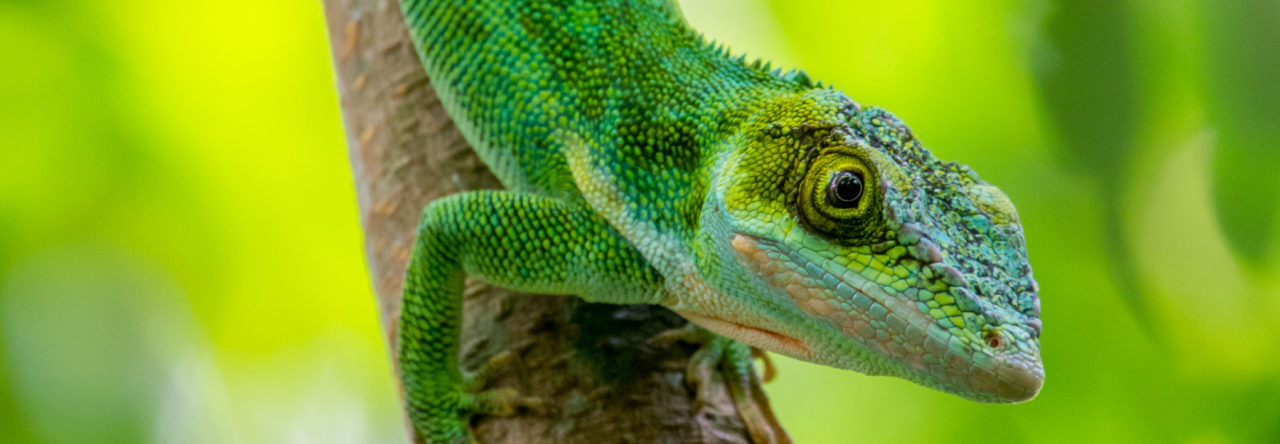New literature alert!
Endurance and sprint training affect immune function differently in green anole lizards (Anolis carolinensis)
In Journal of Experimental Biology
Wang and Husak
Abstract
Limited resources must be partitioned among traits that enhance fitness. Although survival-related traits often trade off with reproduction, survival-related traits themselves may trade off with each other under energy limitation. Whole-organism performance and the immune system both enhance survival, yet are costly, but it is unclear how the two might trade off with each other under energy-limited conditions. Resources may be allocated to very different types of performance (e.g., aerobic endurance versus anaerobic sprinting) just as they may be allocated to different components of the immune system (e.g., innate versus acquired) to maximize survival. We forced allocation to different performance traits in green anole lizards (Anolis carolinensis), using specialized exercise training, to determine how different components of the immune system would be impacted by shifts in energy use. We measured immunocompetence in endurance trained, sprint trained, and untrained control lizards with the swelling response to phytohemagglutinin (cell-mediated), antibody response to sheep red blood cells (acquired humoral), and wound healing (integrated). Endurance-trained lizards had reduced cell-mediated immunity, whereas sprint-trained lizards had reduced rates of wound healing. The acquired immune response was not affected by either type of training. Because each immune measure responded differently to the different types of training, our results do not support the hypothesis that simple energy limitation determines overall investment in immunity. Instead, different components of the immune system appear to be affected in ways specific to how energy is invested in performance.
- Sex-Specific Population Differences in Resting Metabolism Are Associated with Intraspecific Variation in Sexual Size Dimorphism of Brown Anoles - May 30, 2021
- Ecological Opportunity from Innovation, not Islands, Drove the Anole Lizard Adaptive Radiation - May 28, 2021
- Transcriptomic Analysis of Skin Color in Anole Lizards - May 24, 2021



Leave a Reply